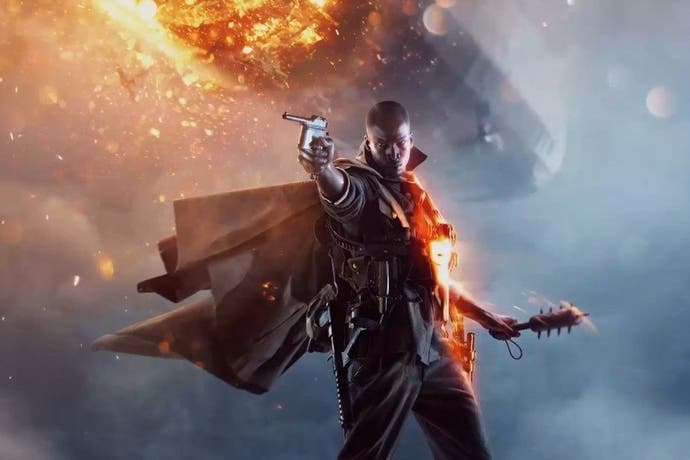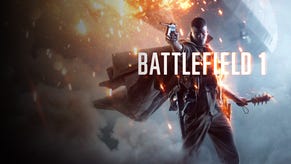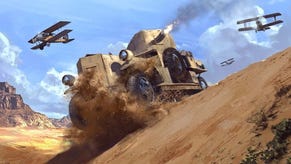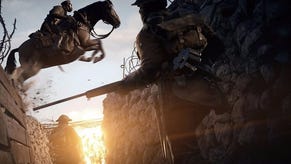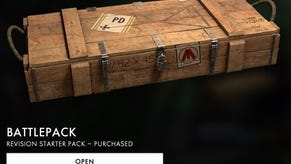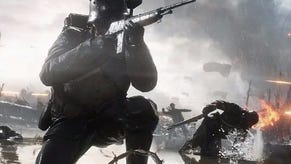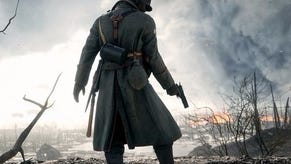Can Battlefield 1 help us see The Great War with fresh eyes?
Over the top?
A couple of years ago I was dozing in front of the TV when I woke to see a spaceship on fire. In actual fact, it was a zeppelin, vast and menacing, presented via a slightly dodgy cable channel special effect, and it was on fire because of the plucky Brits. When German zeppelins raided England in the First World War, the slightly dodgy cable channel documentary explained, they were grim agents of terror, ghosting over the channel at night, flinging their bombs and leaving devastation, death and a profound sense of national violation behind them. For a while, there was no counter, either, until people started to think about the flammable gases that kept the zeppelins afloat. Could that be the key?
It could. But it relied upon two inventions, both of them bullets. The first bullet would explode on impact and punch a huge hole in the zeppelin's skin, letting in air. The second would catch on fire as it flew through towards its target - it was filled with some kind of fuel, and had a little valve covered with solder that would melt away during firing. The two bullets worked in tandem together - they had to be loaded into guns, one then the other, over and over - and after a little debugging, they handled the zeppelins fairly efficiently. Boom.
Before I watched this documentary - and as my vague recollection suggests, I only half watched it even then - the only indication I had that zeppelins ever struck England in the first world war came from the second book of the Regeneration trilogy, when one of the characters visits a neighborhood in war-time London that has been reduced to rubble by an overnight strike. My point being, I think, that history is huge and filled with stuff I don't know about, and I'm grateful to plug the gaps anyway I can. I've been thinking about this ever since the release of the Battlefield 1 trailer. A lot of people have been wondering over the ethics of making a game like that - and certainly at the very least a trailer like that - about a war that was so bloody and grotesque.
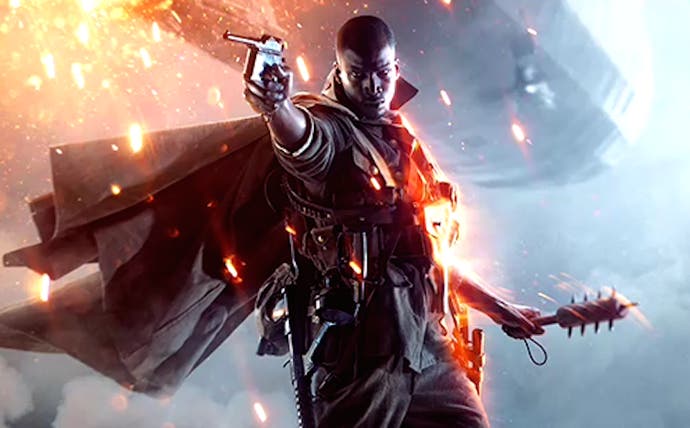
Firstly: as if there's a war that isn't bloody and grotesque, I would argue. And beyond that? Initially I was less struck by the trailer, and more by the image that has been released to accompany the game's announcement. Battlefield 1 is set during World War One, apparently, but when I saw that guy, holding that spiked thing and wearing what looked like a cape, all lurid in the orange and red light, I thought: I don't recognise that. Who is that? What fantastical world has he come from?
Our world, apparently, and that alone feels like justification for at least attempting a game like this. I'm pretty sure people have been having the Battlefield 1 appropriateness argument a lot this week - we've certainly had it in the Eurogamer offices - and I'm surprised to discover that I haven't really struggled to pick a side. The guy in that central image is apparently a Harlem Hellfighter, a group I had never heard of but have now. Reading about the Harlem Hellfighters has opened up another chunk of history to me, just as that slightly dodgy cable documentary clued me into the zeppelin fights. We often learn about the past in strange ways. Is that really a problem?
And the trailer seems to be doing the same job as the teaser image. I didn't really think about this much until now, but my sense of The Great War and what happened in it has been pretty much settled since I read Wilfred Owen and R. C. Sherriff at school and ploughed through The Regeneration trilogy in my early twenties. The Great War was about waiting around in trenches to die, grilling bacon while rats scuttled past, illuminated by the ghostly flare of the Very lights, and becoming a pioneer in PTSD when you got back home - if you got back home. My sense of this conflict hasn't really deepened or been challenged.
And then along comes that Harlem Hellfighter in his cape, and along comes a minute and a half of DICE-handled carnage that makes the war vivid and jarring and most of all contemporary. There will always be a tricky question over turning tragedy into entertainment, but you definitely get a first-person sense of how crazed this conflict was, a near-impossible clash of different eras in which some men sat on horses while other men in airplanes roared overhead. You get a sense of how alien the new technology like tanks, like mustard gas must have been, the 20th century erupting violently into the mindset of the 19th. Sure, it looks exciting but it also looks truly terrifying: if the studio wanted to, it could quite easily pitch this as a horror game. And that would probably be a viable approach.
For me, then, Battlefield 1 has already justified the risks it's taking: games have a peculiar power to make the past vivid and surprising and present. They have a power to make you look again at things you thought you already understood. No matter how the subsequent campaign may or may not unfold, right now this feels valuable.
